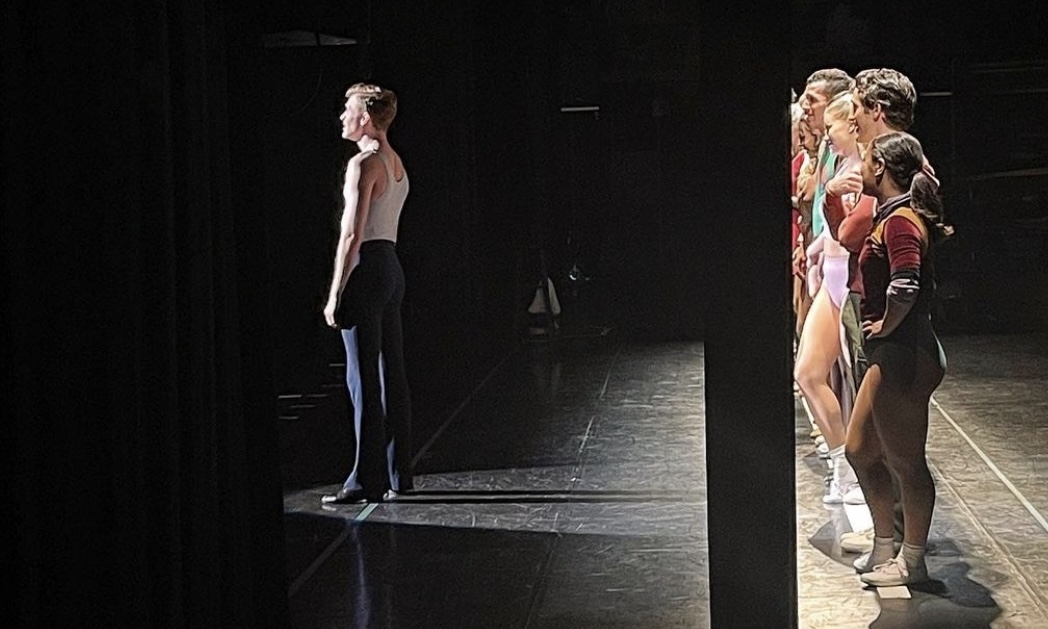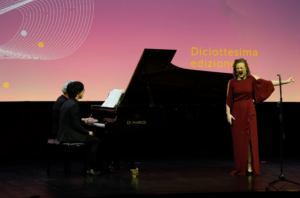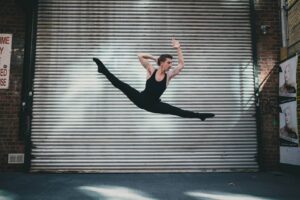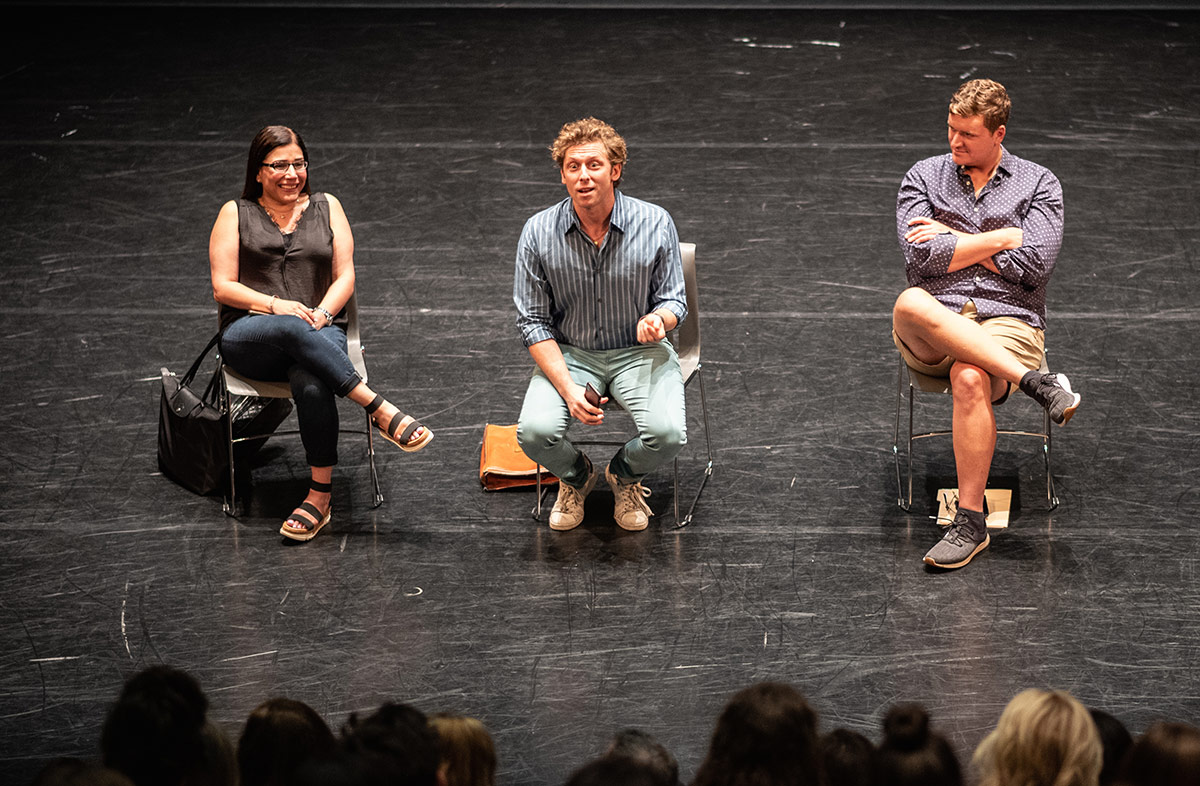What is the main cause of anxiety at a dance audition? The unknown. At singing and acting auditions you are well prepared; your material is memorized and rehearsed. When you walk in you have confidence in the performance you are about to give. Live dance auditions on the other hand are somewhat of a mystery. What will the song be? How fast will they teach it? What side will the grand battement be on? Will I be ready when it’s time to perform it? What happens if I forget a step? Your mind can start to spiral. Don’t let that happen. Here is my list of DOs and DON’Ts at a dance audition to help you gain insight, confidence, and comfort.
Perspective
When I start to feel overwhelmed leading up to a dance audition I think about semi-truck drivers. Probably not what you expected to hear, but stick with me. These schools are not asking you to drive an eighteen-wheeler. They are asking you to dance, a skill you have. Is it going to be a challenge? Yes! Do you run away from challenges? No! Plus, you are most definitely going to look better at this audition than a truck driver. This perspective always helps me find some inner peace.
Attention Seeking Questions
We all want to get noticed at an audition. But, we want to make sure we are getting noticed for the right reasons, not for what I call Attention Seeking Questions (ASQs). When a professor is teaching the dance combination, they are putting on a performance of their own. If someone keeps interrupting to ask ASQs, it ruins the flow of the performance. But, not all questions are ASQs. Here are some questions to ask yourself to help decipher:
- Am I really confused or am I just seeking the professors’ attention?
- Can I watch the demonstration and figure it out myself?
- Has the professor asked the group if there are any questions?
If you are actually confused and have tried to figure it out yourself, then when the professor asks if there are any questions, ask away! But, be aware that by asking multiple questions you may come across as needy or high maintenance.
Body Language
Standing with your arms crossed makes you look closed off, nervous and negative, even if you aren’t. So get in the habit of holding your hands behind your back or down by your side. It keeps you open and ready to receive information.
Stay Engaged
The faculty want to watch you learn, so while they are teaching stay focused. No yawning. It makes you look bored and disinterested. No water breaks. If you must grab a sip of water, you can do so when they break you into small groups. When other groups are dancing don’t sit on the side, don’t practice, don’t talk, don’t change your clothes, be respectful to the people performing. Do you need to be laser-focused in on every other group? No. Find a mental place where you are not moving, but maybe picturing the dance in your head.
Scurry, Scurry, Scurry
Most colleges are on a tight timeline. When they call your group, move out to the floor with swiftness and intention. Watching someone saunter out is a waste of time and frustrates the adjudicators. When it’s your time to audition in small groups, really pay attention to who goes downstage, upstage, stage right, stage left so you can confidently scurry out to your spot.
To Improv or Not?
For the most part a little movement as the music starts is not a bad thing, but nothing show-offish. If the music starts and you have 8 counts before the combo begins, have some fun leading into the combo. But if the dance starts with a strong pose, hit that pose and hold it without grooving before. You can always watch the demonstrators, it’s a good way to gauge the moments leading up to the dance.
Take Up Space
When auditioning in small groups TAKE UP SPACE. You deserve to be there, the people on the other side of the table want you to be exactly what they are looking for. Don’t apologize physically. When a student’s shoulders are hunched over, their head down, they are telling the faculty, “Sorry for what you are about to see.” The thought, “Do they even want to be here?” should never run through anyone’s mind when watching you. Take a deep breath, push your shoulders back, stand tall, and think: “They are lucky to have me here!”
Sorry vs. Thank you
There are very few instances in a dance audition where the word “sorry” needs to be said. Unless you physically hurt someone, avoid it. A lot of high school students feel powerless in an audition, so they over apologize to look respectful. Trust me from the other side of the table, it looks meek. If the professor gives you a correction or feedback, say thank you. As someone welcomes you and points you in the correct direction say thank you. As you are leaving the studio say thank you. Be kind to every single person. Note: Over thanking can make you come off a little artificial. Keep it genuine, but calm.
“I’m not a dancer”
Musical Theater has THREE disciplines, and all three need to be embraced. Do you need to be an amazing dancer? Absolutely not. Many successful performers do not consider themselves “dancers-first” but, they have found a way to use the dance audition as a time to show their charm, personality, & work ethic. So delete the phrase, “I’m not a dancer” from your life. If you are at a dance audition, you are a dancer.
Don’t forget to perform!
Sounds crazy to say, but sometimes people wait for permission or instruction to perform. Once that music comes on, pretend you are onstage, ready to give a show. This includes ballet. Ballet does not always have to be so serious. Enjoy it. This is another moment for the faculty to see you! Don’t throw away this opportunity because you are stressed about a double pirouette. (If you are feeling anxious by just reading about a double pirouette, reach out to your dance coach today!) You have a passion for performing, so take this as an opportunity to do what you love. A dance audition is just as much of an acting audition as it is evaluating your dance skills. Act like you are having a blast!
Keep Dancing!
The honest truth: one wrong step will not lose you an acceptance. Two wrong steps will not lose you an acceptance. But if you have a meltdown, and stop dancing that will be noticed and could cost you an acceptance. The faculty wants to see how you recover. One aspect of professionalism is messing up and not letting it derail your entire audition. The associate choreographer of Hamilton admitted she teaches the dance quickly to see how the dancers perform under pressure. She said are we expecting it to be perfect? No! But, we want to see the dancers fight for it. Even if you have forgotten every single step keep dancing. The worst thing you can do is give up.
I hope these tips help. As much as you can’t predict what will happen in that audition room, you can prepare. Auditioning is a skill, meet with your MTCA dance coach to practice. Remember you are auditioning the school just as much as the school is auditioning you. Can you see yourself going to school here? Do you feel welcomed? Last thing to keep in mind is they are not looking for perfection. They are looking for someone with whom they want to spend four years. So show them your love and passion for performing.
About the Author

David Grindrod is originally from Annapolis, Maryland, but now lives in New York City. He played Mark in A Chorus Line at New York City Center directed by two-time Tony Award Winner, Bob Avian, as well as on the National Tour. He was the associate choreographer to Tony Award Recipient, Baayork Lee for the China Premiere of A Chorus Line. David choreographed The Light in the Piazza along side Tony Award Winner, Victoria Clark at the Sheen Center. He directed & choreographed A Chorus Line at Weathervane Theatre & Footloose at White Plains Performing Arts Center. He’s the resident choreographer at Quisisana Resort (The Drowsy Chaperone, Seussical, Cabaret, PolkaDots, & A Year with Frog and Toad) and Music Theatre Kansas City (Pajama Game, Bells are Ringing, Fame, My Favorite Year, Hair, & Joseph…Dreamcoat) Other Credits: Beauty and the Beast (National Tour), A Chorus Line (Japan Tour, Pittsburgh Civic Light Opera, Pennsylvania Shakespeare Festival, Gateway Playhouse, & Weston Playhouse), Newsies (Westchester Broadway, Costal Carolina), Dirty Rotten Scoundrels (Maltz Jupiter Theatre), Elf (Costal Carolina), Walt Disney World and Universal Orlando. He is a graduate of Pace University’s Musical Theatre Program with a Minor in Dance. He is thrilled to work with the MTCA students as they grow in skill, confidence, and join the next generation of musical theatre performers.




